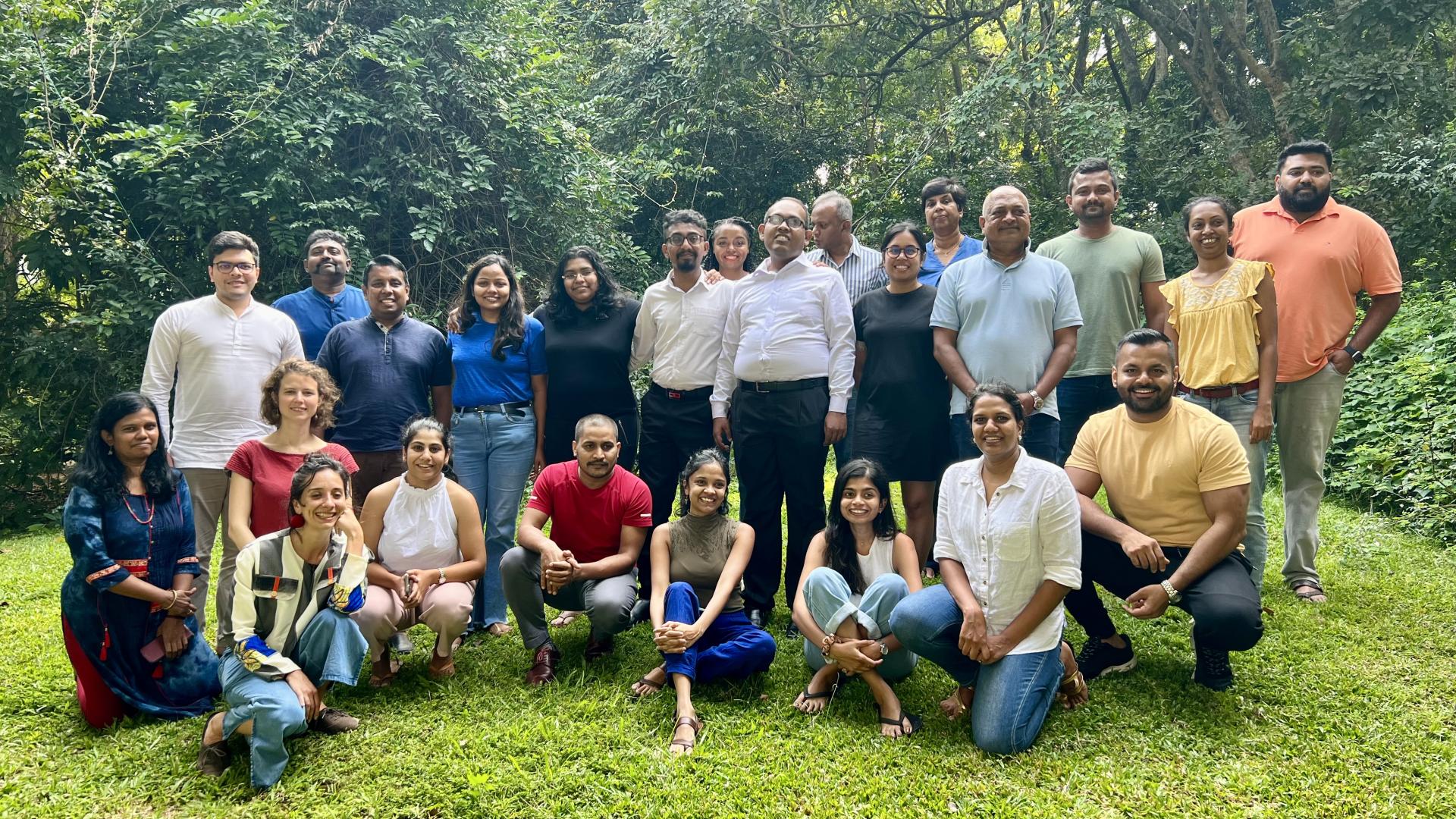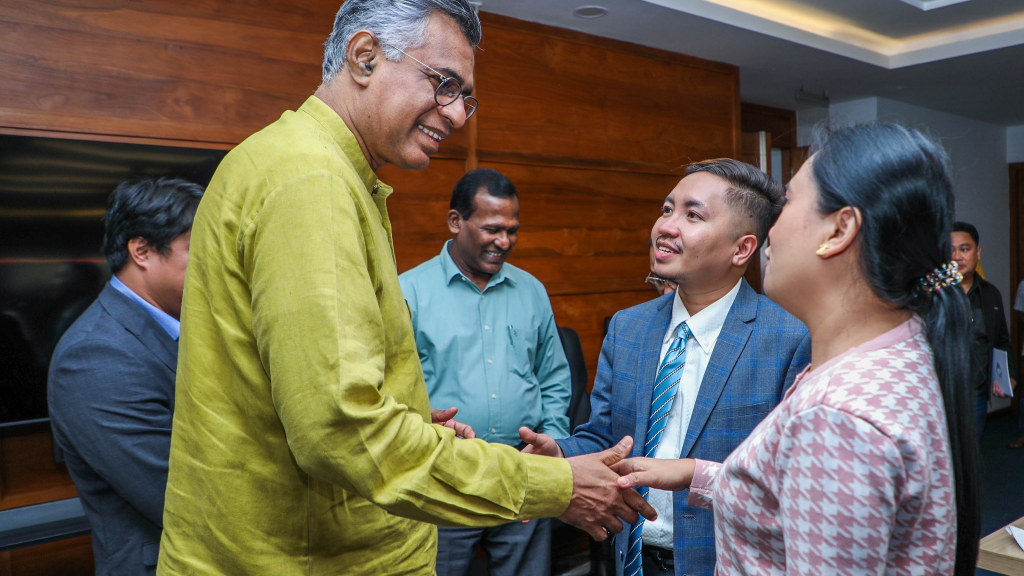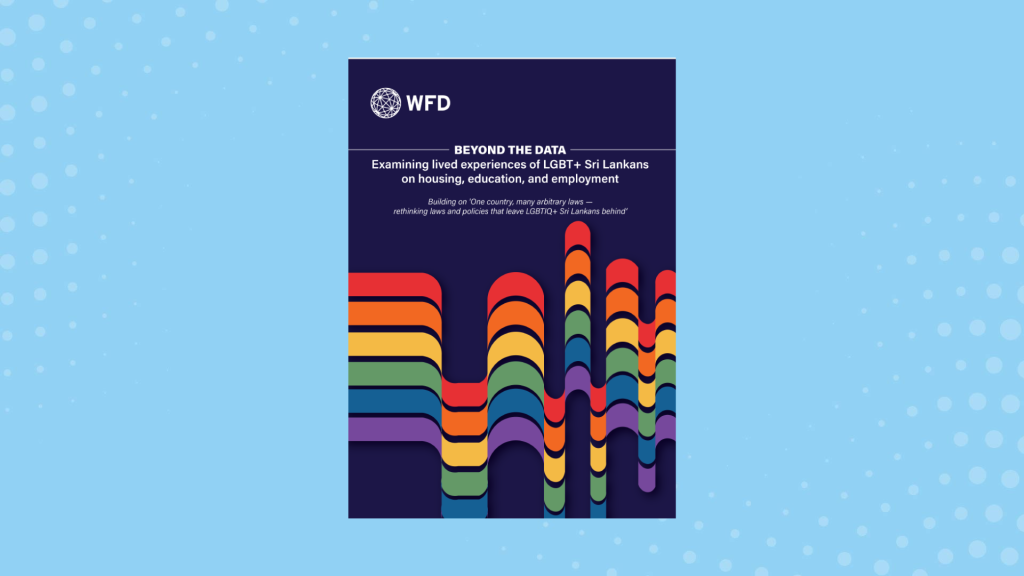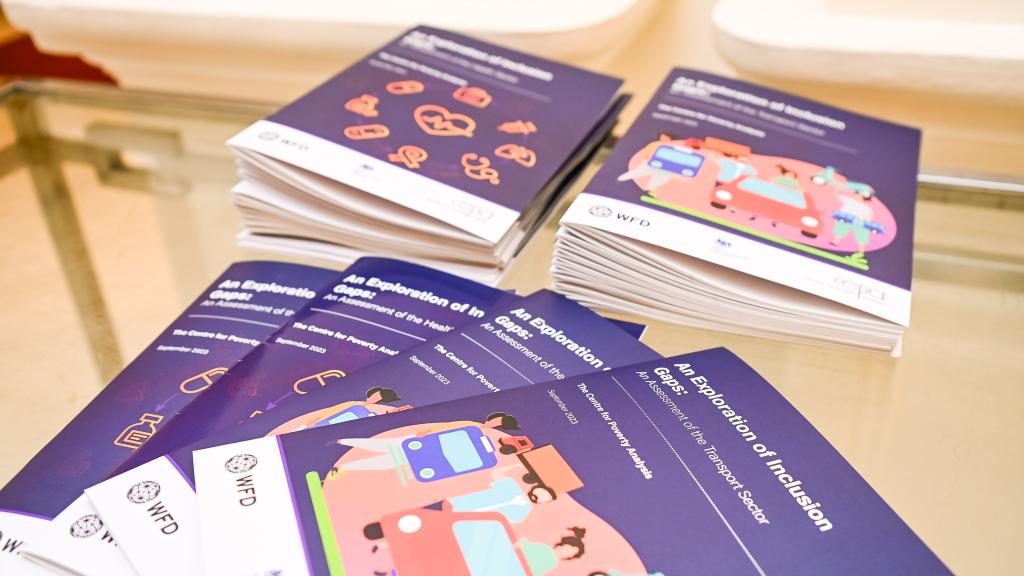Fostering inclusive economic growth in Sri Lanka: WFD's transformative approach

In 2022 Sri Lanka was left reeling, descended into an unprecedented economic and political crisis. Long queues for essentials, power cuts, and severe shortages of food, fuel, and medicine sparked months-long mass protests nationwide. Ultimately, the government was toppled, forcing both President Gotabaya Rajapaksa and Prime Minister Mahinda Rajapaksa to resign.
While the government attempted to restore economic and political stability, it was evident that the impacts of the crisis were most keenly felt by women, young people, people living in poverty, people with disabilities and people from religious, ethnic, and sexual minorities. For decades, Sri Lanka’s most vulnerable populations were excluded from economic policies, due to their marginal political representation, especially within Parliament. Thus, there was a pressing need to support the Parliament of Sri Lanka in its efforts to address the crisis, through an inclusive approach to policymaking.
Collaboration for change
Recognising the need for inclusive economic recovery and to ensure no one is left behind, WFD Sri Lanka brought together a diverse group of stakeholders, including parliamentarians, media, CSO representatives, youth, women, and members of other excluded groups. The group was formed on the principle that a collaborative and cohesive approach was the key to sustainable economic transformation.
Initially the Economic Inclusion Working Group, and relaunched as the Coalition for Inclusive Impact (CII) in 2024, its aim was to evaluate existing policies and plans towards economic recovery through an inclusive lens and amplifying voices of underrepresented groups to better understand the impact of the crisis on their day-to-day lives. By fostering meaningful partnerships between these stakeholders and key policymakers, WFD aimed to create a sustainable mechanism that would embed marginalised perspectives into Sri Lanka's economic policies for the long term.
This innovative approach created extraordinary opportunities for parliamentarians and civil society representatives to lead collaborative dialogues about how economic policies affect vulnerable populations, while working to integrate these insights into institutional processes.
Remarkable impact in just two years
Since its formation, the Coalition for Inclusive Impact has achieved remarkable progress with WFD's support.
- Building and strengthening capacity of its members and creating platforms where MPs, political parties, media, civil society, and private sector can work together towards truly transformative economic growth.
- Evidence-based advocacy: Conducting research and championing inclusive policies that ensure economic prosperity reaches everyone in Sri Lankan society. For instance, an assessment of the health sector policies in Sri Lanka revealed that public-private partnerships could reduce the burden on Sri Lanka’s health sector. CII members also provided research and recommendations to a parliamentary committee reporting on the national budget and economic crisis. Key issues included period poverty, allocations for elderly care, and anti-corruption measures for economic growth and recovery.
- Strengthening political cooperation and collaboration: Developing cross-party networks and building trust among political actors, significantly improving policy coordination and mutual understanding.
- Shifting governance culture: Moving towards a more inclusive, collaborative and evidence-driven approach to governance.
Through these efforts, WFD has demonstrated how inclusive policymaking is key for sustainable economic growth that benefits all citizens.



